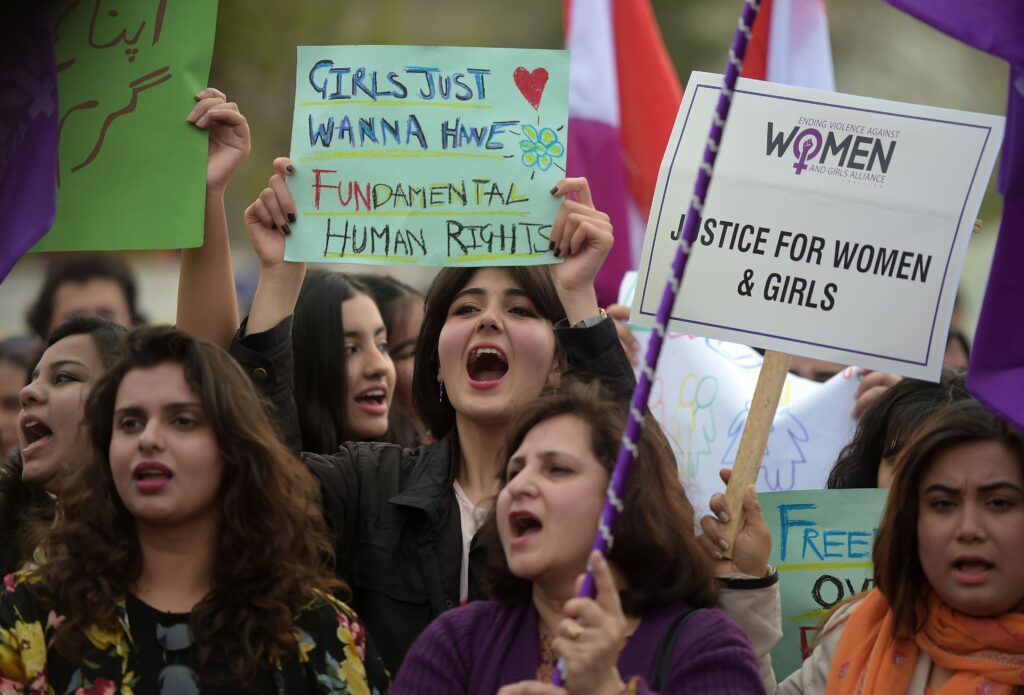- Web Desk
- Feb 19, 2026
Rising violence against women: 4,558 GBV cases reported in Pakistan in 2024
-

- Abobakar Khan
- Jan 02, 2025

ISLAMABAD: A staggering 4,558 gender-based violence (GBV) cases were reported across Pakistan from January to November 2024.
According to a report compiled by Sahil, an NGO working on the safety of women and children, has revealed statistics on attacks between January to November 2024. The total number of these cases includes incidents of murder, rape, suicide, abduction, honor killing, and torture.
Also read: ECP flags risks in e-voting for overseas Pakistanis as senate panel explores options
With alarming regularity, violence continues to plague women of all ages in Pakistan.

The report, based on data gathered from 81 newspapers across all four provinces, including Islamabad Capital Territory (ICT), Azad Jammu and Kashmir (AJK), and Gilgit-Baltistan (GB), paints a bleak picture of the nation’s ongoing struggle with gender-based violence. Of the reported cases, 1,273 were murders, 799 were abductions, 579 were cases of torture, 533 were rapes, and 380 were suicides.

In addition, an alarming percentage of the victims were young women. Although only 5 per cent of the victims were under the age of 18, the data highlights the vulnerability of young women and girls to various forms of abuse. The most vulnerable age group appears to be women aged 21-30, with 459 cases of GBV reported. This is followed by 444 cases from the 11-20-year-old group and 167 from those aged 31-40.

The statistics also revealed that the majority of abusers were acquaintances (33 per cent), while 14 per cent were husbands, and 10 per cent were strangers. In many cases, the identity of the perpetrator remained unknown or unreported, accounting for 22 per cent of the total incidents.
The provincial breakdown of the reported cases illustrates a significant imbalance in the distribution of GBV. Punjab, the country’s most populous province, accounted for a whopping 73 per cent of all cases. Sindh followed with 15 per cent, while Khyber Pakhtunkhwa (KPK) accounted for 8 per cent. Both the Islamabad Capital Territory (ICT) and Balochistan, as well as AJK and Gilgit-Baltistan, each contributed 2 per cent of the total cases.

The data also highlights the districts with the highest reported cases of violence against women, revealing a concerning trend of vulnerability in specific regions. Faisalabad tops the list with a significant 766 cases, followed by Rawalpindi with 367 cases. Lahore and Sialkot each report 269 cases, while Gujranwala has 257.
Kasur also has a notable number of incidents, with 215 cases. Other districts, such as Multan, Rahim Yar Khan, and Sheikhupura, report 134, 129, and 102 cases respectively, while Peshawar records 100 cases. These figures underscore the need for focused efforts to address and reduce violence against women in these areas.

The findings underscore a troubling trend of gender-based violence that continues to dominate national headlines. Despite the efforts of civil society organisations, law enforcement agencies, and the government, women across Pakistan continue to face alarming levels of violence, with limited accountability for perpetrators.
The report concludes with a call to action for the Pakistani government, local authorities, and society at large to take more effective steps toward ensuring the safety and security of women. It urges lawmakers to pass stronger laws, prioritise the enforcement of existing ones, and implement measures that directly protect vulnerable women and girls from becoming victims of GBV.
Furthermore, the report adds that the violence is not limited to urban areas. Rural communities, where access to resources and legal support is limited, are often more susceptible to cases of abuse that go unnoticed or unreported.
Also read: Peshawar BRT achieves new milestones in 2024
While December’s data was not included in this report, preliminary figures show that an additional 554 cases of GBV were reported, further intensifying concerns about the rising violence.
As Pakistan continues to grapple with these shocking statistics, advocates for women’s rights urge the nation to take immediate steps to curb the tide of GBV. The onus lies on every member of society to create a safer environment where women can live without fear of violence, abuse, and discrimination.




